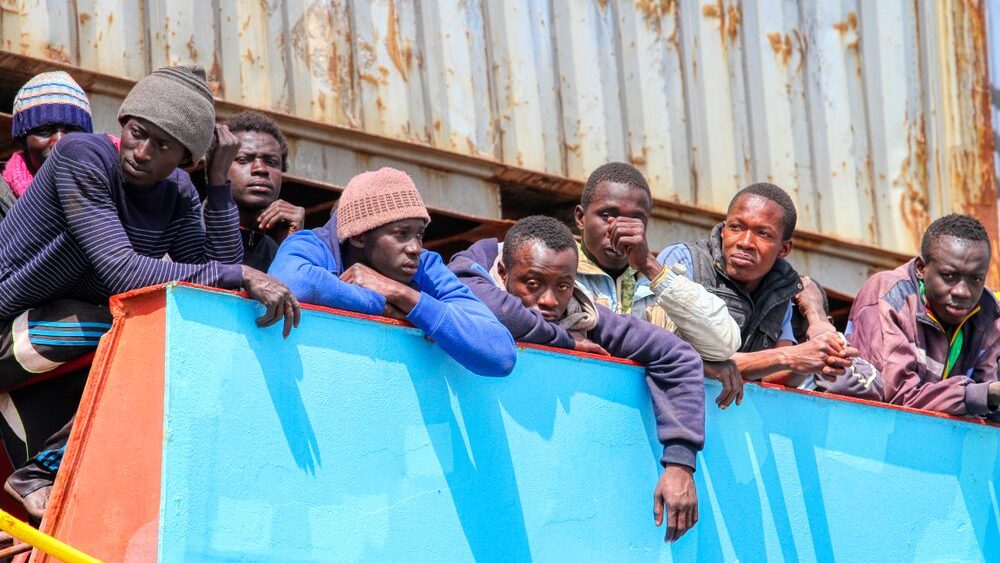
Photo: Massimo Todaro / Shutterstock.com
Two separate reports published this week have both sounded the alarm over a rising number of migrants arriving in Europe. In its Risk Analysis for 2023/2024, the European Union’s border agency, Frontex, warns that “geopolitical instability in countries to the east and south of Europe may result in large-scale refugee outflows.” These “could pose a severe challenge to the EU’s capacity to host these populations and strain local people’s willingness to help.”
🆕The annual Risk Analysis for 2023/2024 is out! 🆕
— Frontex (@Frontex) September 4, 2023
The report provides a comprehensive overview of the challenges at the EU’s external borders, including the migratory trends, the long-term impact of the war in Ukraine and the evolution of cross-border crime in the coming year.… pic.twitter.com/CbPbuHQJxa
As Frontex points out, there were 332,000 detected illegal border crossings last year, a 66% increase compared to 2021. This year is seeing further increases: illegal crossings at the EU’s external borders rose by 13% to 176,100 in the first seven months of 2023, the highest total for the January-July period since 2016.
The European Union Agency for Asylum’s (EUAA) latest statistics also highlight a growing trend in the number of migrants coming to Europe. During the first half of 2023, applications for asylum rose to 519,000, a 28% increase compared to the first half of 2022. Syrians continued to lodge the most applications for asylum in EU nations and non-EU members Norway and Switzerland. According to Frontex’s report, the top ten nationalities of people detected illegally crossing borders were Syrian, Afghan, Turkish, Pakistani, Indian, Tunisian, Ukrainian, Nigerian, Congolese, and Moroccan. (The illegal Ukrainians were almost all men, who are eligible to serve in the army and are therefore not allowed to leave the war-torn country. All other Ukrainians can freely enter the EU and automatically benefit from temporary protection.)
In the first half of 2023, 🇪🇺 countries received 519 000 applications for asylum – a 28% increase compared to the first half of 2022.
— EU Agency for Asylum – EUAA (@EUAsylumAgency) September 5, 2023
Click 👇 to read the EUAA's Latest #AsylumTrends to get insights into nationalities, recognition rates & pending decisions.
Both reports call attention to the problem of rejected asylum seekers remaining in Europe. Only 41% of asylum seekers were granted either refugee status or subsidiary protection in the first half of this year, meaning that 59% of cases were rejected. However, only 17% of rejected migrants—86,000 people—were returned home. “This lacklustre performance carries serious implications for the effectiveness of Schengen and cooperation with third countries,” Frontex’s report assessed.
Migration is set to be a hot topic during the campaign for the European Parliament elections next year, as more and more governments are vying to stop the current trends. French President Emmanuel Macron recently stated he wants to significantly reduce immigration, but people in France think Marine Le Pen, parliamentary faction leader of the anti-immigration party National Rally, is a more credible voice on the subject. Italian Prime Minister Giorgia Meloni and her Greek counterpart, Kyriakos Mitsotakis, discussed forming an alliance to address illegal immigration. Meloni herself has announced a long-term diplomatic and legal strategy after being criticised for not doing enough to stop migration since coming to power last year. Parties campaigning against illegal migration all across Europe—such as FPÖ in Austria and AfD in Germany—are riding high in opinion polls. Meanwhile, Poland is organising a referendum in October in the hope that people will reject the EU’s proposal to redistribute migrants to EU member states.
